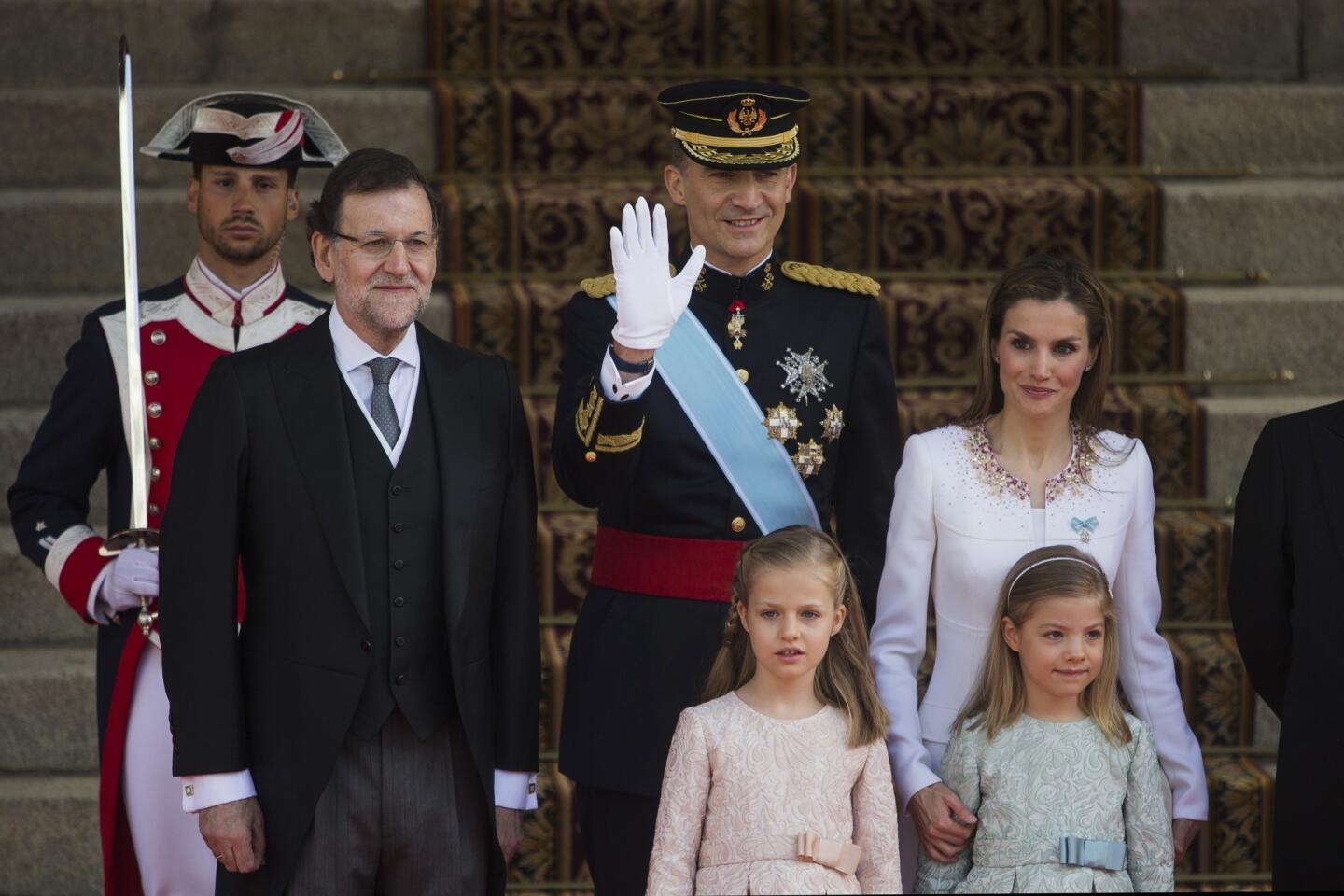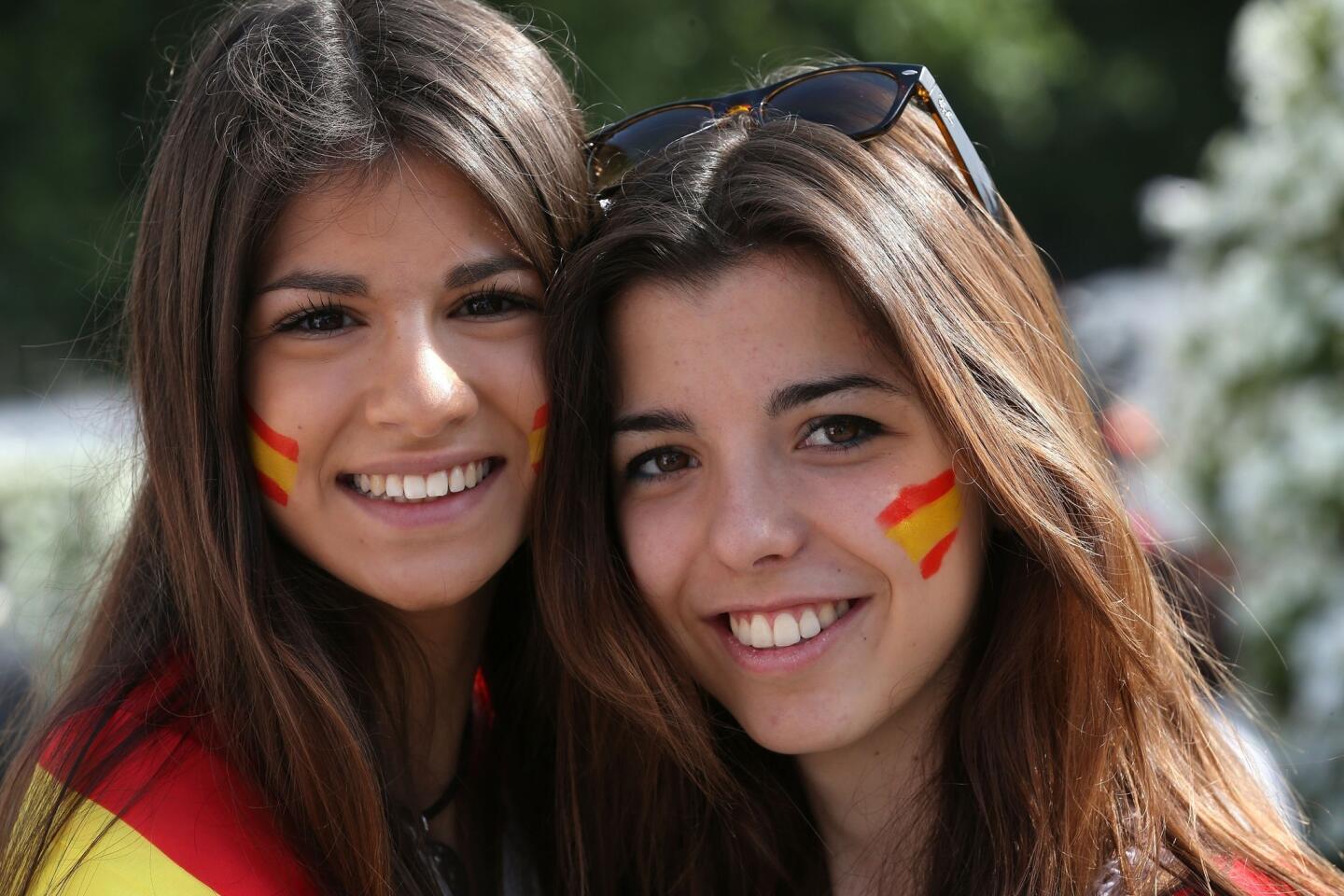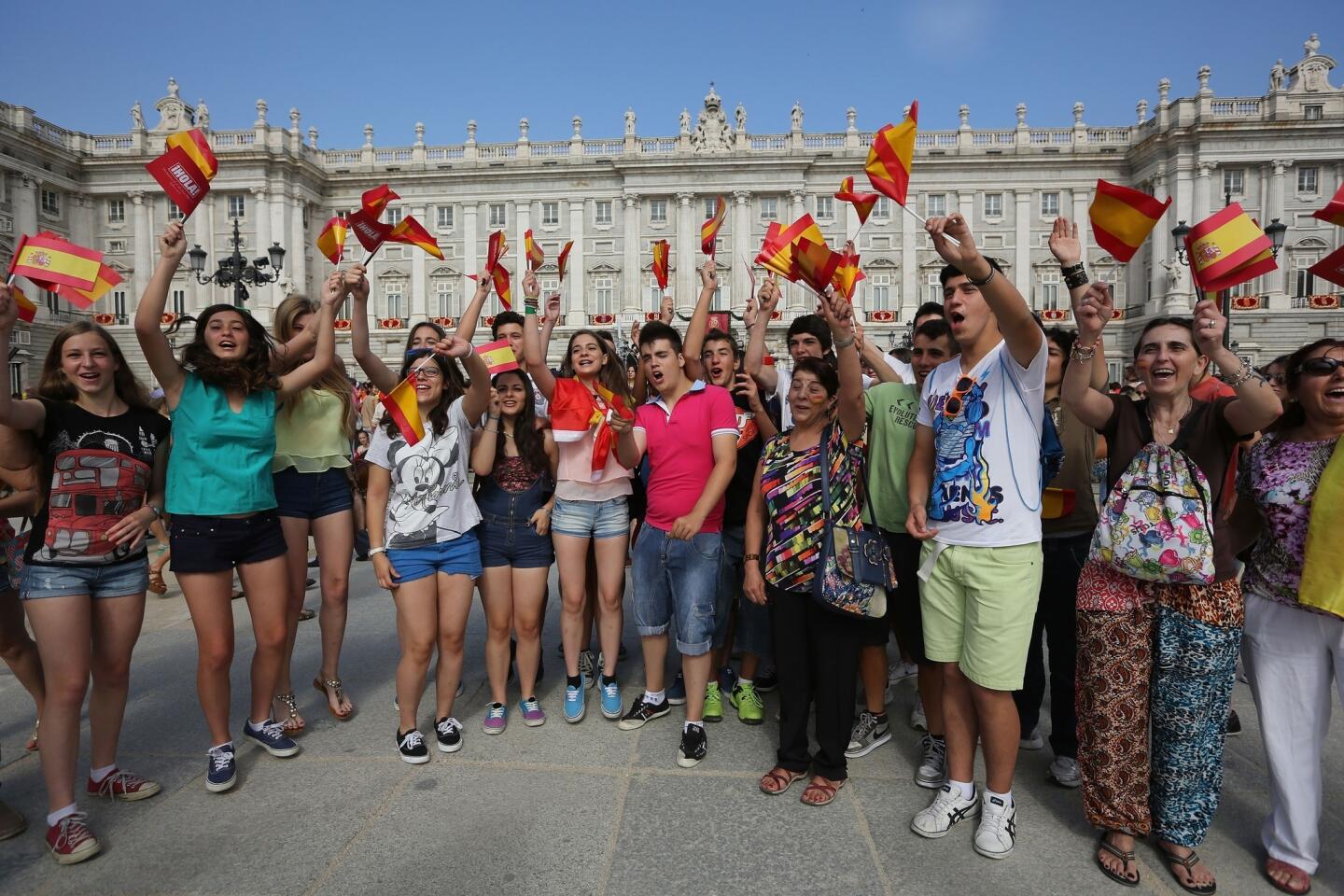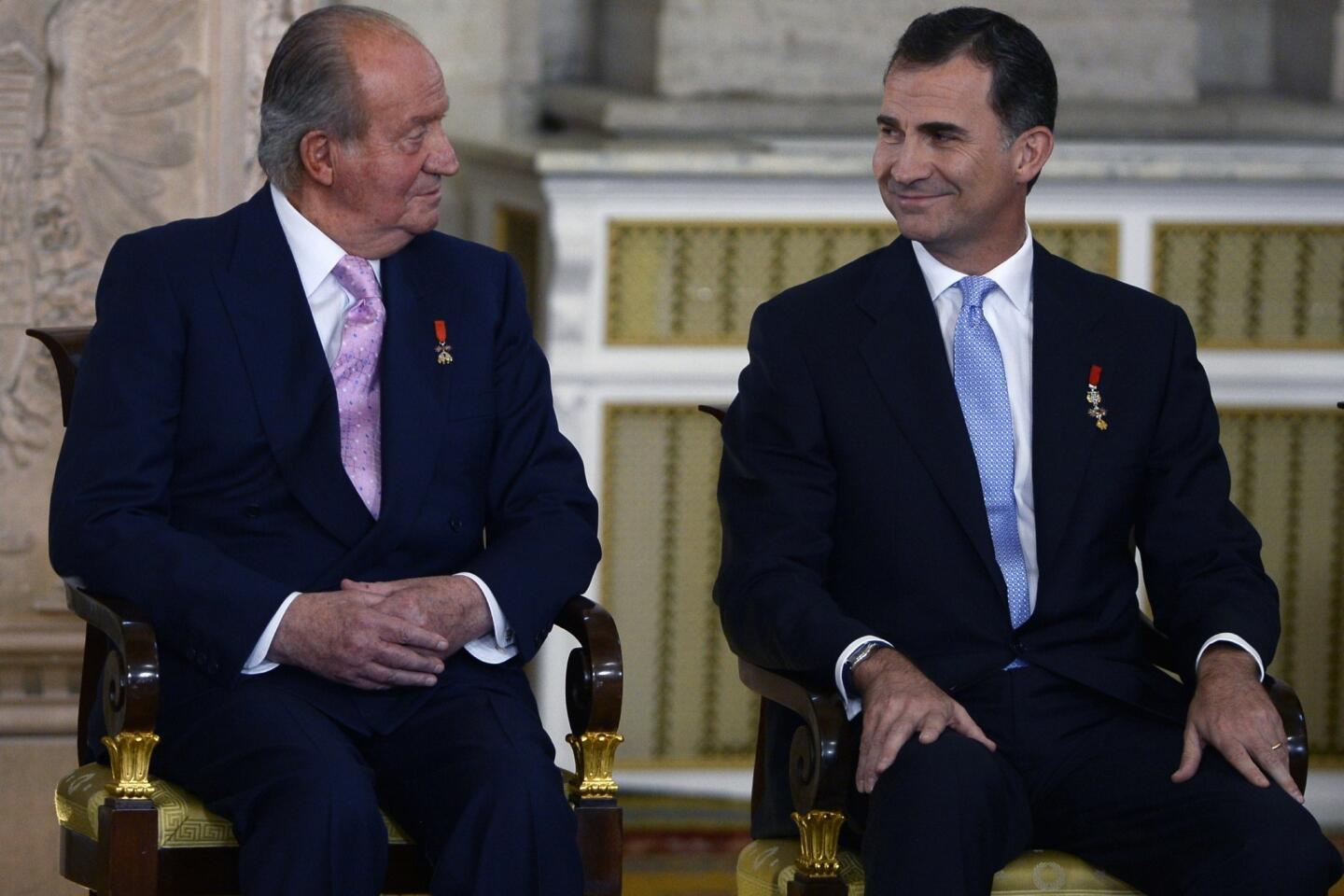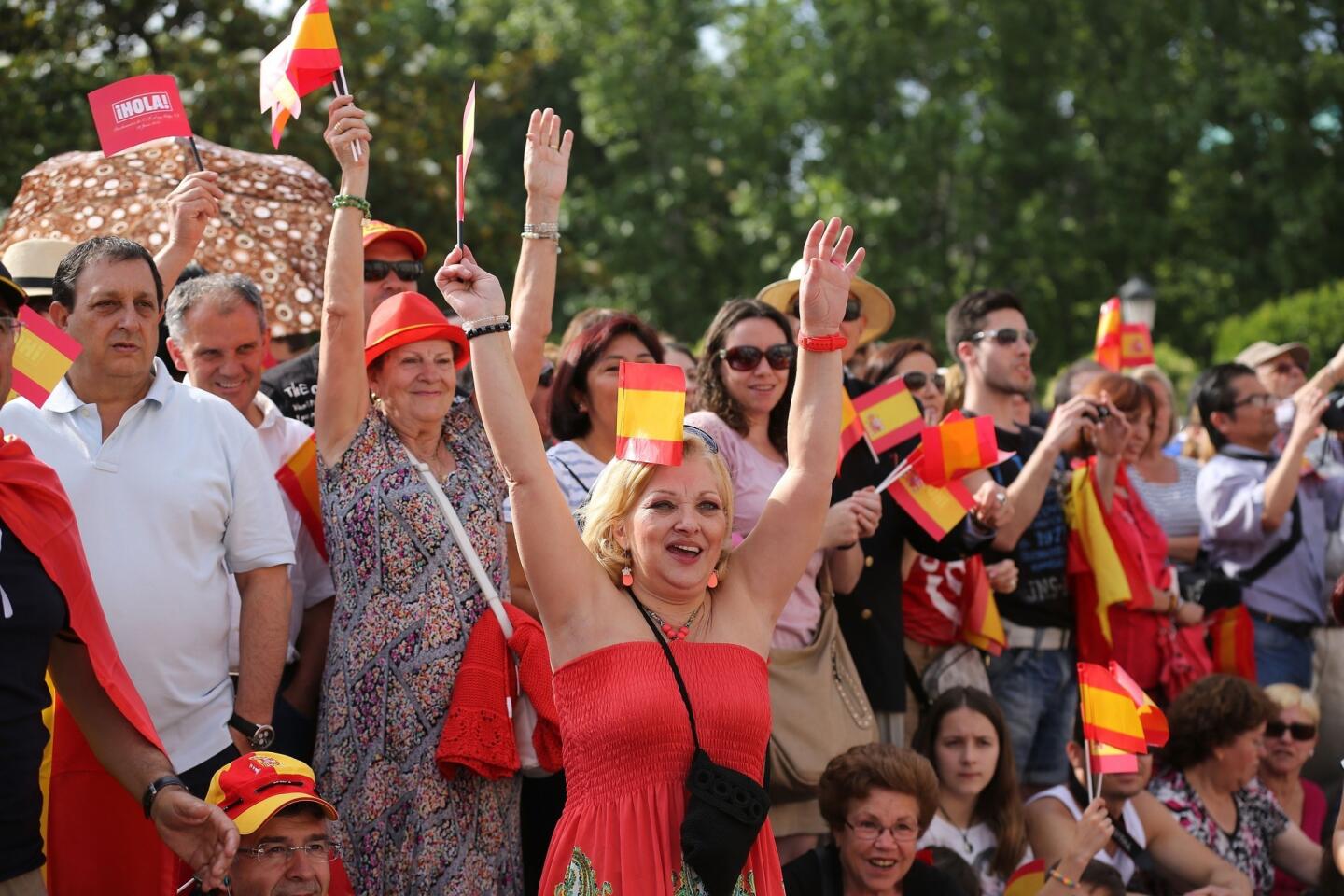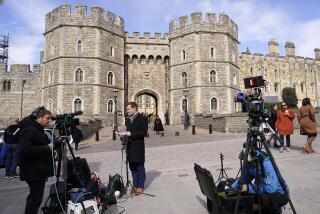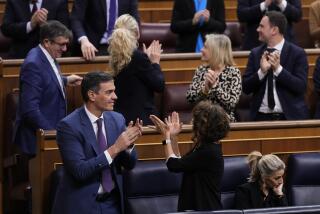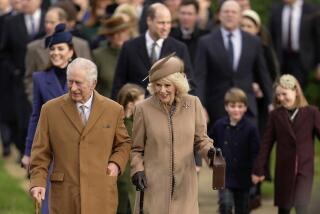Felipe VI proclaimed king of Spain in a no-frills ceremony
Felipe VI was sworn in Thursday as Spain’s new king, bringing a fresh face to the Spanish monarchy at a time when its popularity ratings have hit historic lows.
The 46-year-old monarch took an oath and was then proclaimed king, without a formal coronation, during a special joint session of Spain’s parliament. No foreign royals or heads of state were invited.
“I have great hope for the future of Spain ... a nation whose destiny has been intertwined with my destiny since I was born,” Felipe told those assembled, citing the “deep emotion” he felt. His voice broke occasionally during an address that lasted 25 minutes.
He spoke of a “united and diverse” Spain, an acknowledgment of the regional identities that have riven parts of the country, and closed by saying “thank you” in four regional languages: Castilian Spanish, Catalan, Basque and Galician. He urged lawmakers to act for the good of the Spanish people, who have been hit with massive unemployment and economic hardship during Europe’s debt crisis.
The new king also paid tribute to the service of his parents, the former King Juan Carlos and Queen Sofia. Only Sofia attended the parliamentary proclamation.
The no-frills ceremony Thursday morning was followed by a parade, with the new king and his wife, Queen Letizia, riding down Madrid’s Gran Via to the Royal Palace, about a mile from the parliament building, in a convertible black Rolls Royce. There they reunited with Felipe’s parents, and three generations of royals waved to supporters together from a balcony: Juan Carlos and Sofia, Felipe and Letizia, and the new monarch’s two young daughters.
Thousands of Spaniards waving flags cheered their new monarchs outside the parliament building, which was draped in a red-and-gold embroidered tapestry two stories tall, bearing Spain’s royal coat of arms. The conservative Spanish government denied permission to at least four anti-monarchy groups to hold demonstrations.
The main arteries through central Madrid were closed to traffic, and thousands of police officers lined the streets, with snipers stationed on rooftops. Lampposts were festooned with Spanish flags. Helicopters buzzed overhead.
Felipe and Letizia arrived at the parliament building in a motorcade, escorted by motorcycle police. A few spectators shouted, “Viva el rey!” (“Long live the king!”).
Felipe wore a navy-blue military uniform with a red sash around his waist, signifying the highest rank in the Spanish military, and stood with his wife and their two young daughters on a platform as the national anthem played. Inside, the assembled audience gave him a long ovation.
“The parliament has great hopes for your reign,” said Jesus Posada, the president of the lower house of parliament, adding that he hoped for a “magnificent period of progress and stability for Spain.”
“Viva el rey!” the audience cried after Felipe swore his oath. “Viva España!”
Juan Carlos ruled for 39 years, presiding over Spain’s transition to democracy in the late 1970s. The 76-year-old’s health is deteriorating, and his otherwise popular reign has been tainted by scandals in recent years. He was forced to offer an unprecedented apology in 2012 for going elephant-hunting in Africa at a time of deep economic crisis back home. His daughter Cristina is being investigated for alleged embezzlement of public money. Polls show Juan Carlos’ public approval rating at a record low of 38%.
On June 2, he announced his abdication in favor of his son, the crown prince. Felipe is more popular than his father but faces stark challenges: a hobbled Spanish economy, regional separatist movements in Catalonia and elsewhere, and rising discontent with the monarchy itself.
The outgoing king signed his abdication notice late Wednesday in a solemn ceremony at the Royal Palace, where he received a standing ovation from 150 invited guests. His abdication took effect at midnight, when Felipe then officially became king, hours before his formal swearing-in.
Frayer is a special correspondent
More to Read
Start your day right
Sign up for Essential California for news, features and recommendations from the L.A. Times and beyond in your inbox six days a week.
You may occasionally receive promotional content from the Los Angeles Times.
